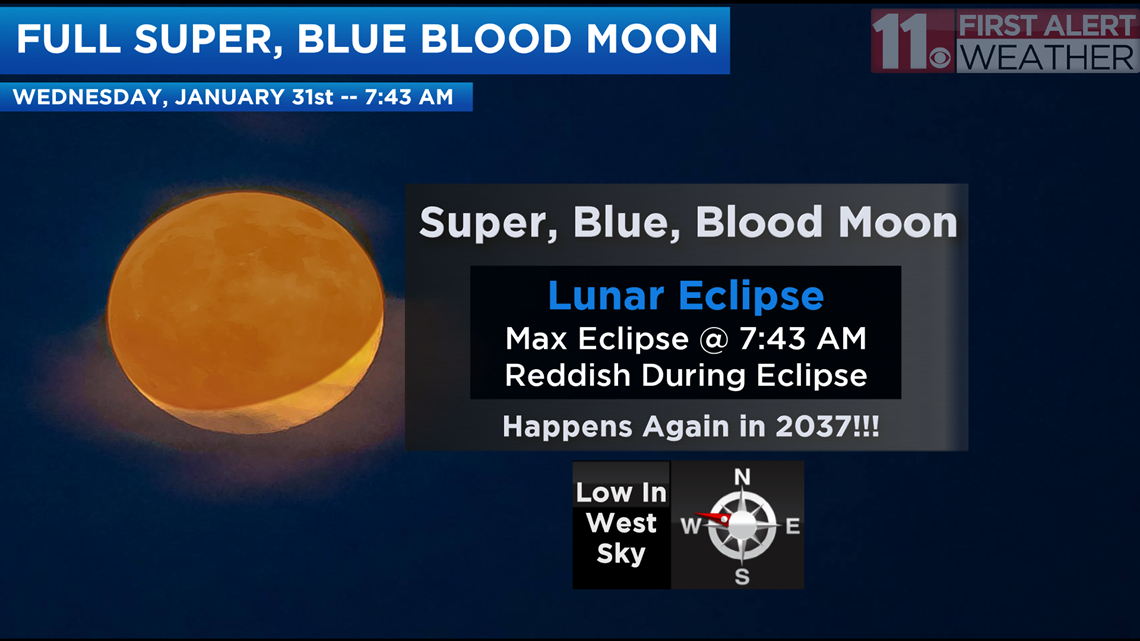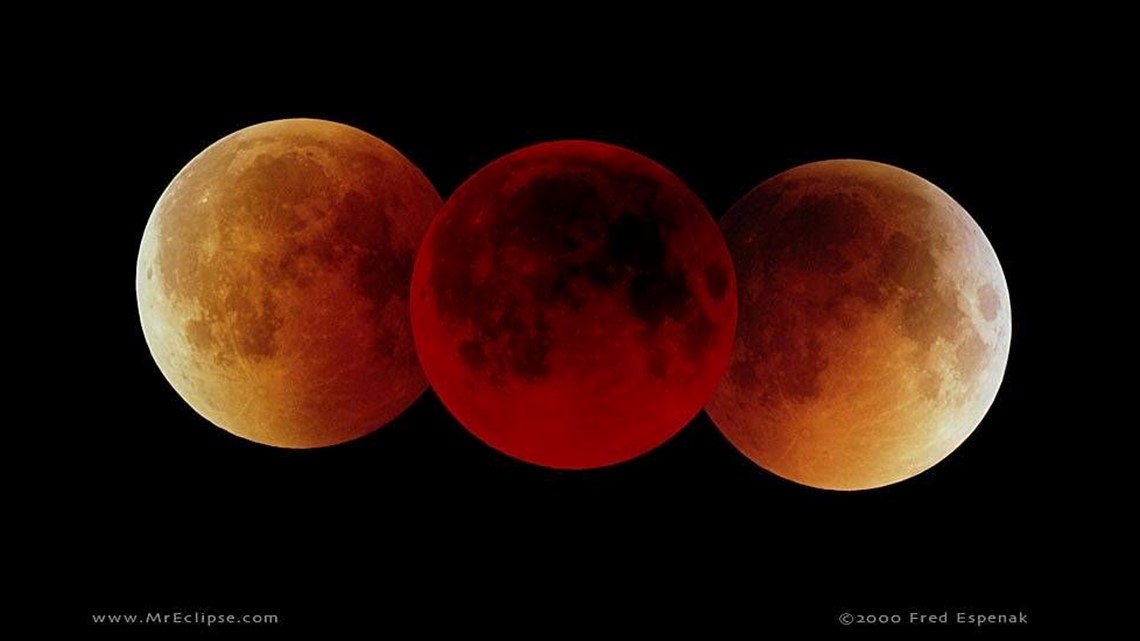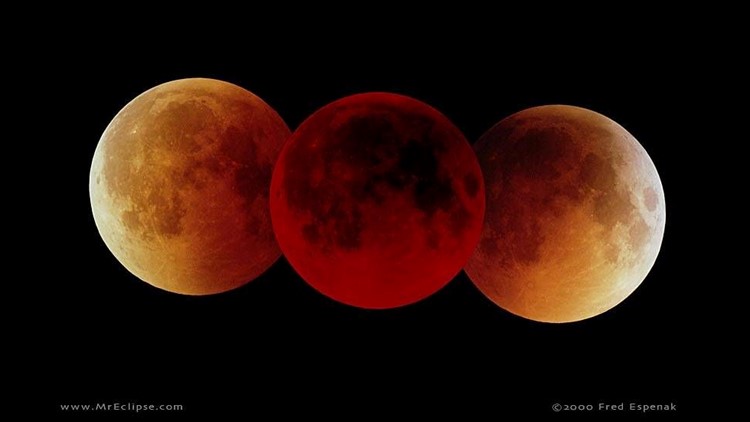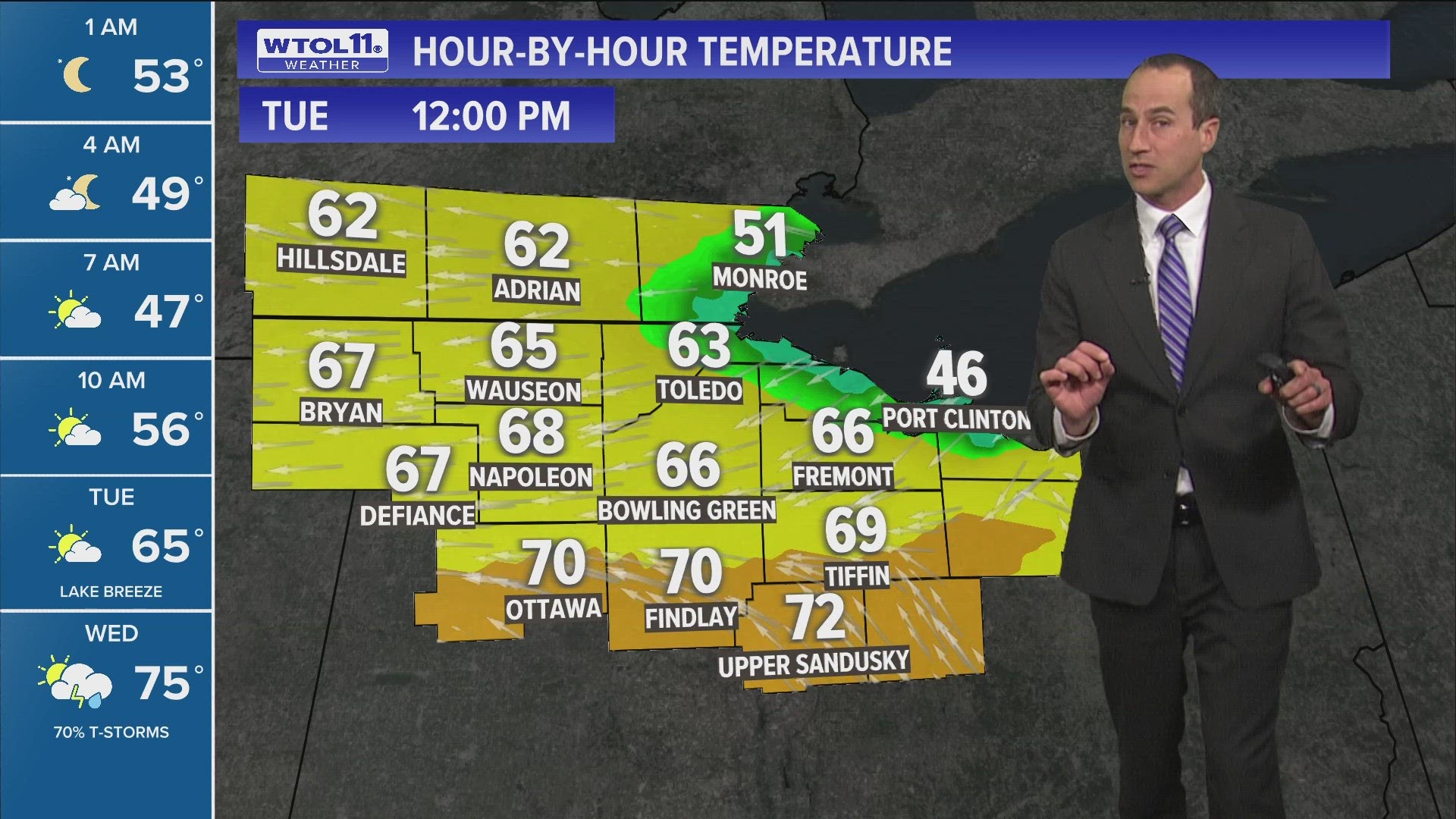A rare "Blood Moon" lunar eclipse is happened on Wednesday, January 31.
Check it out:
This Super, Blue, Blood Moon is special and exceptionally rare for three reasons. It's the final Supermoon in a series of recent Supermoons. This happens when the moon is closer to Earth in its orbit -- known as perigee. The moon itself will appear 14 percent larger and about 30 percent brighter than usual. It's also the second full moon of the month, commonly known as a "Blue Moon". Finally, the Super Blue Moon will pass through Earth's shadow, resulting in a spectacular lunar eclipse. While the Moon is in the Earth's shadow it will take on reddish tint, known as a "blood moon."


For our area, the partial eclipse will begin at 6:48 AM on Wednesday morning. By the time we reach our maximum eclipse at 7:43 AM the moon will be setting just over the western skyline. The moon will set by 7:46 AM ending our opportunity for viewing. Look to the west, ideally in an open area so you are able to see the lower skyline.


Image Credit: Fred Espena
So why is the moon red, not blue? Remember, a "Blue Moon" only refers to the second full moon in a calendar month. The reddish or copper color is a direct result of the lunar eclipse. A total lunar eclipse happens when the whole moon enters Earth's shadow. Some sunlight still reaches the moon, but first it goes through Earth's atmosphere. The atmosphere filters out most of the sun's blue light, so the moon looks red. In this time-lapsed image, the moon changes color as it moves through Earth's shadow.
This lunar eclipse will happen at the same time as a supermoon and a blue Moon. This lunar trifecta is the first of its kind in 35 years and will not occur again until 2037. Be sure to stay tuned to the spectacular celestial views this Wednesday morning!
Meteorologist Chris Vickers
Like Chris on Facebook HERE!
Follow on Twitter HERE!





